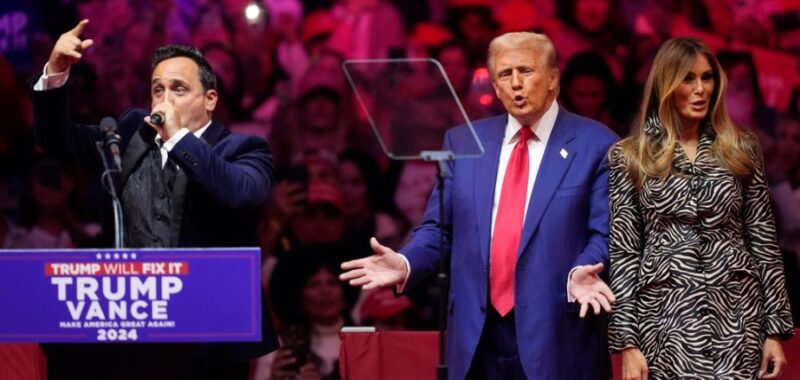
The dust has settled on the 2024 election, and Republicans remain gleeful about their opponents’ struggles. One source of Republican glee is the now-infamous financial mismanagement of the Kamala Harris presidential campaign.
In just 15 weeks, the Harris-Walz campaign burned through $1.5 billion, only to lose convincingly in seven out of seven battlegrounds. From glitzy fundraisers to millions of dollars on a single celebrity endorsement, the Harris spending spree was historic for all the wrong reasons, and more details are emerging by the week that will live in infamy long after election 2024.
Democrats are now left wondering how they became “the party of the elites,” to quote The New Yorker. Republicans, on the other hand, can celebrate a Trump campaign that was drastically outspent but outperformed Harris in every single battleground state.
But now is the time to tread carefully. There is such a thing as humility in victory, knowing that the pendulum of politics swings back and forth. Even better, there is such a thing as learning from victory, so that weaknesses can become strengths in the years ahead.
Let’s be clear: A red wave in 2026 is not a foregone conclusion just because something like that just happened in November. Nor is 2028 a given for JD Vance or any other Republican nominee for president, assuming Democrats learn their own lessons and correct course by moving to the middle (still to be determined).
So how can Republicans learn from their red wave? It’s the money, stupid.
Yet again, the 2024 election exposed a troubling vulnerability for Republicans that leaves them exposed in the 2026 midterms and beyond, and that is low-dollar fundraising. Although welcome allies, Republicans have come to rely far too heavily on individual donors like Elon Musk. The hero worship of Musk’s mobilization in battleground states such as Pennsylvania — which was pivotal — masks the fact that an overreliance on mega-donors like him can spell long-term trouble.
If Musk had not flooded the zone with critical soft dollars to get out the vote in Pennsylvania, the 2024 election could have turned out very differently, and there would be no reason for Republicans to celebrate. Without Musk, Harris’s $1.5 billion spending spree may have looked like a prudent investment.
There is no guarantee of sustained mobilization from Musk or other high-dollar sources come 2026, let alone 2028, and Republicans must prepare accordingly. My company is extremely engaged in Senate and House races, and Republicans are often outraised three-to-one among low-dollar donors. This failure stems from a struggle to engage with everyday voters who can only contribute $10 or $25 to a campaign. Even if such voters are highly motivated by a once-in-a-generation candidate like Donald Trump, that doesn’t necessarily translate to a low-dollar gift.
Republicans must figure out how to engage with low-dollar donors and speak in their terms, even if it translates to “only” $5 here and $5 there. Most voters are with Republicans on issues like the economy and immigration, but candidates and campaigns still need to go out of their way to bring them into the fold.
On the left, there is much talk about economic populism and Democrats embracing the Bernie Sanders model for presidential politics in future races. But Republicans can and should take their own cues from the Sanders campaigns of 2016 and 2020, when the Vermont senator used low-dollar fundraising to become a national sensation. The Sanders campaign relied primarily on donations under $50 a pop, attracting millions of voters who feel alienated by the Washington, D.C. establishment and seek attention from political forces like Sanders or Trump.
Despite the 2024 victory, it is not sustainable going forward for Republicans to trail Democrats by a three-to-one margin in any metric. Losing to a $1.5 billion candidate is a short-term win, but what does it say about the long run? What happens if the Democrats get similar funding, but put up a much stronger nominee?
The Republican Party must focus on building deeper relationships with small dollar donors and drawing new donors into the GOP so we increase the number of new donors.
The foundation for low-dollar success needs to be laid now — before victory turns into inevitable defeat. Will Republicans learn in time?
Wesley Donehue is founder and CEO of Push Digital Group.

